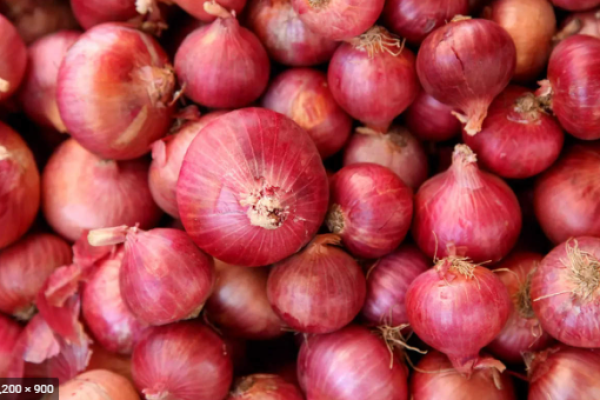The Indian government has taken proactive steps to address the surge in onion prices by initiating onion procurement at ₹2,410 per quintal, according to Consumer Affairs and Food Minister Piyush Goyal. The move comes as trading in Maharashtra’s mandis, including the largest onion market in Asia at Lasalgaon in Nashik, was suspended indefinitely starting Monday in protest against the imposition of a 40% export duty.
Goyal emphasized that the procurement process aims to protect the interests of both farmers and consumers. With the prevailing FOB (Free on Board) price for onion exports standing at $320 per quintal, the government’s procurement price of ₹2,410 per quintal ensures higher earnings for farmers compared to the global market rates, which would translate to a realization of ₹18-20 per kg for farmers.
In light of the escalating onion prices and to ensure domestic supply stability during the upcoming festival season, the government had decided to increase the onion buffer to 500,000 tonnes. The procurement efforts are being undertaken by the National Cooperative Consumers’ Federation of India Limited and the National Agricultural Cooperative Marketing Federation of India, with an additional 100,000 tonnes each.
Goyal further explained that the initial procurement of 300,000 tonnes of onions had already led to increased prices and profits for farmers. Considering the uncertain market conditions, the government decided to procure an additional 200,000 tonnes of onions, indicating that further procurement will be considered if required.
To address potential inflation and prevent onion prices from reaching triple digits, the government imposed a 40% export duty until December. Goyal drew a parallel to the successful government intervention in the tomato market, which helped stabilize prices and benefited consumers. The government aims to achieve similar results in managing onion prices and ensuring an adequate supply of this kitchen staple.
Currently, the all-India average retail price of onion stands at ₹40 per kg. The government’s proactive measures are expected to mitigate the impact of price fluctuations and safeguard the interests of both farmers and consumers.













